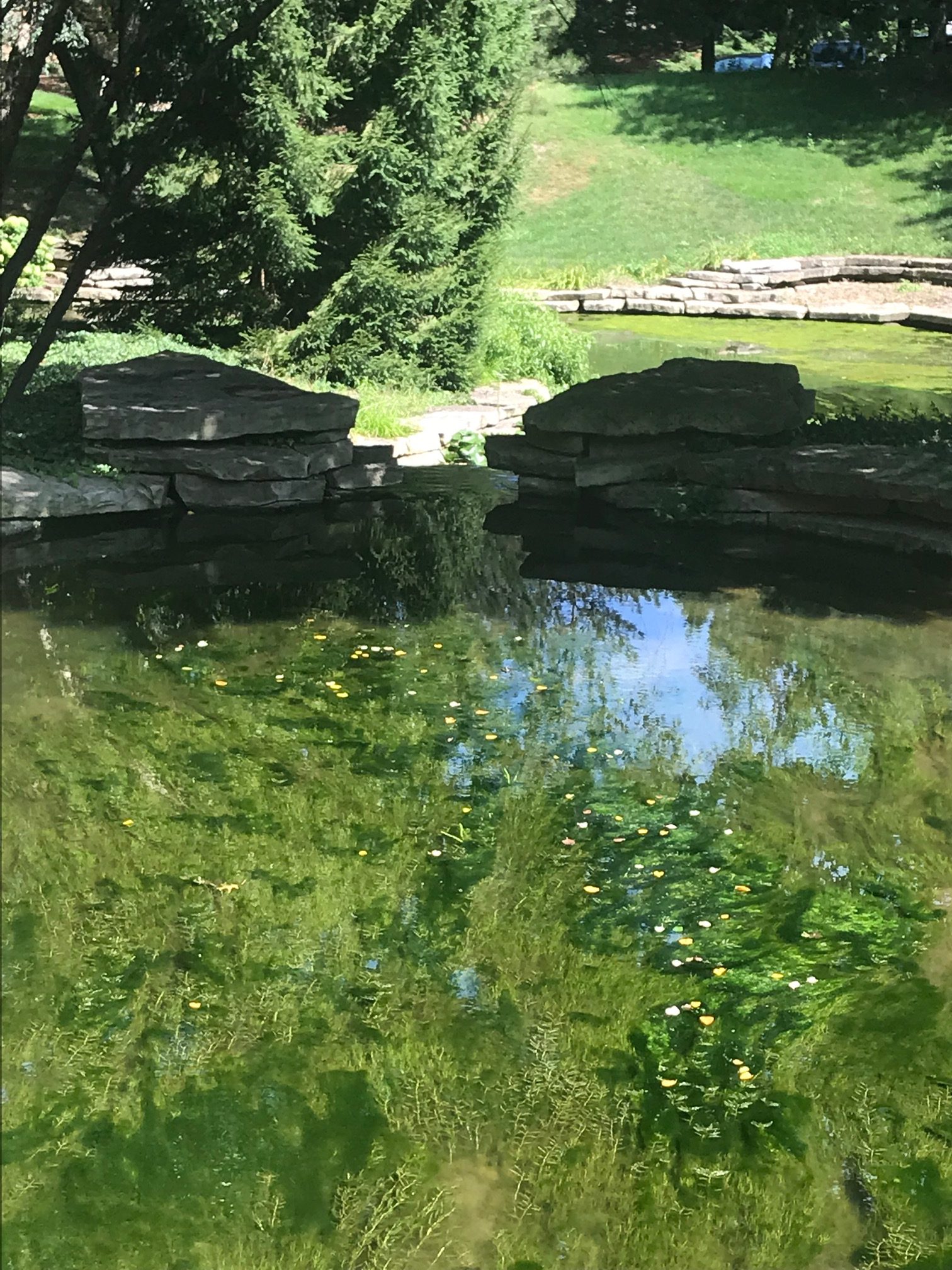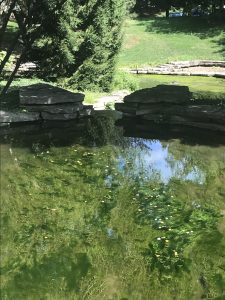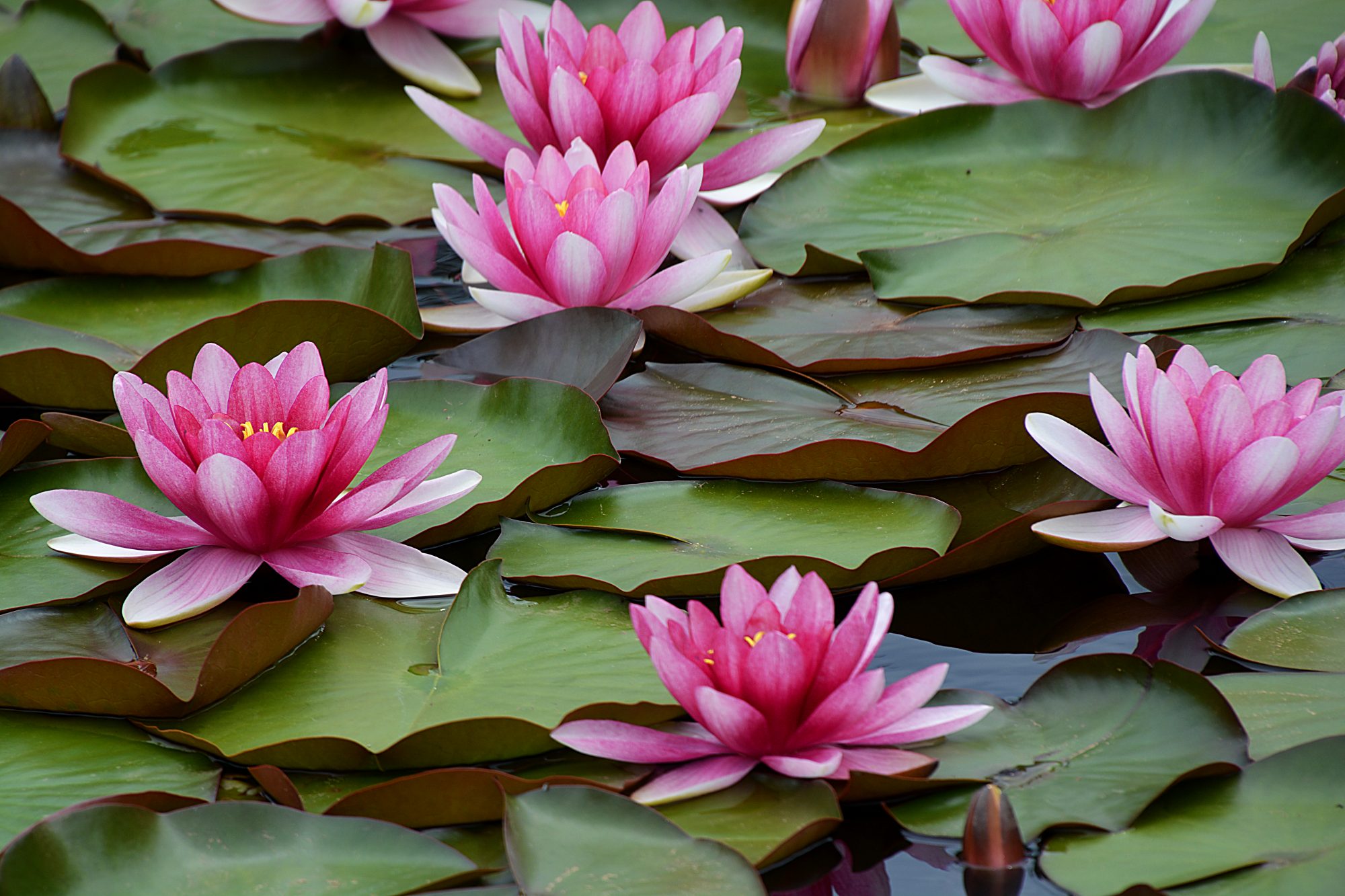Five steps for pond algae removal in Dallas, TX
Pond algae in Dallas can seem overwhelming to many pond owners. Algae is the most basic plant on the planet and can seem like the biggest problem to many pond owners. Dallas algae is particularly heavy when temperatures are warm and nutrients are excessive.
Dig in!
Your best bet is to get in there and remove the pond algae by hand. It may seem dirty, but it is essential to do before treating so you can reduce the amount of decay. Pull the biggest bits of string algae near the base, pull hard, and put it into a bucket. It can sometimes be difficult to pull out a lot at one time since it is soft and malleable. Physical removal is the fastest way to get algae out of your pond and take the next step to crystal clear pond water.
Treat water to remove remaining algae
Some sources suggest using a pond algaecide for pond algae removal in Dallas TX, but we never recommend unnatural chemicals even if the labels state they are safe for fish and plants. We stick to natural solutions for algae control and recommend a combination of Aquascape products with bacteria/enzymes to speed up the process. Normal green hair-like or carpet/blanket algae which grows on pond walls and some rocks is best left untouched and completely acceptable.
Add extra plants
Place quick growing and reproducing plants in your pond to increase oxygen content. Make sure you take out the decaying plants first, as they will not help your fight against algae. Choose plants that will grow larger, consume a lot of nutrients, and will not require a lot of upkeep.
What’s causing the algae?
Look for potential causes of algae by testing your water quality. If algae is growing at a problematic level than it is time to look beyond the algae and mat and deeper into the pond chemistry. High pH and Phosphorous levels are the leading cause of string algae. Examples of what can cause high pH are the clearing of algae blooms, excessive plant growth, overstocking of fish, and the introduction of foreign materials (untreated concrete, rocks containing limestone or calcium/granite).
Feed Koi & Fish Less to Reduce Excess Nutrients
One of the most common errors by fish pond owners is to overfeed their fish, thus adding excess nutrient to the water. If there is any food left in the pond uneaten, you’ve fed your fish too much. By feeding less you also increase the fishes’ appetite for other substances in the pond. Like algae!
If you can’t (or don’t want to) take care of your algae we certainly can. Fnc Ponds specializes in pond algae removal as well as all other water features items in the Dallas area. Contact us to see how we can help you.







